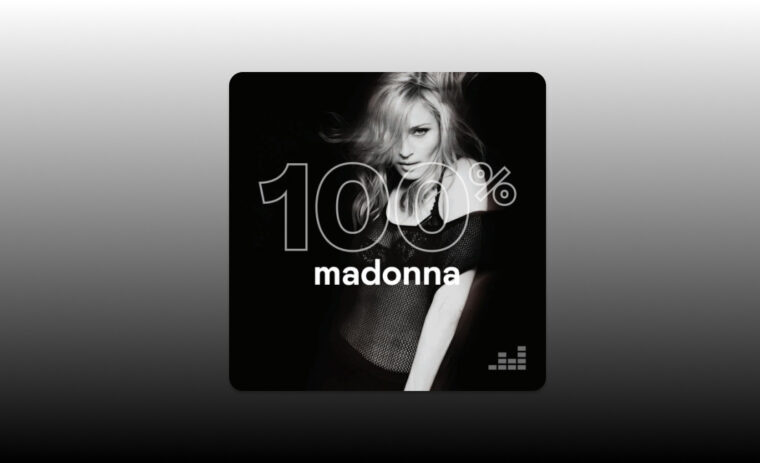Amy Winehouse forged a legacy in the music industry that is still being felt today despite a career cut short. Winehouse’s soulful voice, personal lyrics, and intricate blend of jazz, R&B, classic doo-wop, and pop crafted a singular musical identity.
Winehouse’s two studio albums reached a worldwide audience, leading to her historic five major Grammy Awards in one night. A visionary whose life ended too soon, Winehouse will be remembered as an artist who poured her heart and soul into each song and performance, revitalizing older musical genres and setting trends that are still being replicated today. The following are the best Amy Winehouse songs and the meaning behind them.
“Rehab” (2006)
The song that launched Winehouse into superstardom, “Rehab” boldly and defiantly chronicled her journey across one of modern pop history’s catchiest hooks and choruses. The song addresses her addictions, her stance on her demons, and her refusal to compromise that stance. Buoyed by intensely personal lyrics, slick production by mega-producer Mark Ronson, and a stellar video to match, Winehouse released a raw and moving depiction of her life that connected with fans worldwide and brought mental health issues to the forefront of the zeitgeist. In short, it is a masterful execution that stands at the pinnacle of her artistic career.
“Tears Dry On Their Own” (2006)
Ingeniously created around a sample of the classic Marvin Gaye and Tammi Terrell duet “Ain’t No Mountain High Enough,” Amy Winehouse proved her prowess in this love ballad and forged a path for herself as a songbird with an untethered lyrical approach. The song drifts between the nostalgia of yesteryear and is injected with modern pop influences for a contemporary twist that is now regarded as a seminal anthem. Here, Winehouse meanders between heartache and sorrow and moves to eventual acceptance. The song’s emotional weight cannot be denied, and by the last verse, the chanteuse has almost singlehandedly redefined the shape of traditional pop love ballads.
“Body and Soul” with Tony Bennett (2011)
Bennett teaming up with Amy Winehouse was the perfect combination — an icon calling upon an upstart to create beautiful music together. Tony Bennett, who was 85 years old at the time, chose Winehouse specifically for his Duets II album, taking the classic song “Body and Soul” and putting their distinctive imprint on the song.
From their harmonizations and the piano arrangement, “Body and Soul” delivers at every angle as it contemplates love lost, a sense of regret, and longing. The haunting song was released after Winehouse’s death and reminded fans why she rose so high and so quickly as a superstar in an industry where one-hit wonders are par for the course.
“Me and Mr. Jones” (2006)
Proving that she is not always about heartache and woe, Winehouse went lighter on “Me and Mr. Jones,” a hypnotic song dripping with classic ’60s soul while referencing music titans like Sammy Davis, Jr. as well as contemporaries like Slick Rick. What many people may not know is that “Me and Mr. Jones” is a homage to Nasir Jones, better known as Nas, the revered hip-hop artist. Winehouse was photographed alongside Nas in the 2000s and the paparazzi speculated on their relationship. The song takes a tongue-in-cheek love letter to Nas, showcasing Amy’s respect and adoration for the rapper. The melancholic tune seamlessly aligns with the emotional depth of the lyrics and accentuates Winehouse’s soulful vocals. Listening to this track, fans can hear the emotion held within each note, a testament to the singer’s intensity and range.
“Back to Black” (2006)
“Back to Black” is one of Amy Winehouse’s most iconic songs, revered for its retro sound that encompasses elements of darkness within the lyrics. Co-written by Mark Ronson, the song nabbed the team the Grammy Award for Record of the Year in 2008. In the song, Winehouse depicts the heartache and addiction unfolding in her life, centering on a rocky relationship and the underlying loss and love that inevitably follows. This is Winehouse at her most poignant and pure, a standout song in her discography highlighting her immense talents as a singer and songwriter. In short? Pop perfection!
“Valerie” with Mark Ronson (2007)
Another striking collaboration with Mark Ronson, “Valerie” was a massive success. The song’s retro ambiance brought Amy’s prowess as a versatile singer to the forefront, standing as a testament to her talent for infusing soul into any musical genre she delved into. Their cover of the song took it to enormous heights, and thanks to Mark Ronson’s ’60s soul arrangement, it evolved from the original into a song embued with sultry overtones.
“Love Is a Losing Game” (2006)
Arguably her most touching ballad, “Love Is a Losing Game” takes a minimalist approach and yields maximum results, showcasing Amy’s stirring vocals and the lovelorn lyrics attached. Easily a musical homage to classic ’60s girl-group pop, the song is an autobiographical journey covering sorrow and is an impassioned plea and shining example of Winehouse’s songwriting capabilities. The song sounds like a contender for the Great American Songbook, and no one brings the emotion like Amy, who shines here in an understated fashion that immediately connects with listeners and represents her penchant for taking a song and putting her singular touch on it.
“Wake Up Alone” (2006)
At a time in musical history when most pop artists took a contemporary approach to their sound, Amy Winehouse forged her path by embracing classic soul elements, with “Wake Up Alone” a perfect example of her appreciation for its impact on her artistry. The song serves as a wink and nod to ’50s soul, a time capsule of the allure of the sound combined with Amy’s unique perspective. What takes the song to the next level, however, is Winehouse’s commitment to honoring the song from start to finish — effectively putting her stamp on the sound and evolving the genre to include modern layers.
“Just Friends” (2006)
It was not only soul music that resonated with Amy Winehouse; reggae also heavily factored into her musical choices. With “Just Friends,” she effortlessly captures the nuances of the genre and commandeers its distinctive rhythm and hypnotic groove. As usual, Winehouse’s storytelling reigns supreme, and her lyrics offer a perspective that is hers and hers alone. What the song does more than anything else, however, is prove that Amy Winehouse is capable of playing across several musical playgrounds and creating a singular impact in any one she chooses.
“You Know I’m No Good” (2006)
For the casual fan, Winehouse’s love for hip-hop music may not be as readily apparent, but with one listen to “You Know I’m No Good,” those sentiments are quickly laid to rest. This gritty song plays in and around the sounds of hip-hop and includes emotionally charged lyrics that pop thanks to Winehouse’s vocal talents and immaculate instrumentation that elevates the atmosphere. True to form, her song traverses the complex narratives associated with love and betrayal and is unapologetic in its brutal honesty. This song effectively brought Winehouse new fans from the hip-hop community and elevated her status as a serious singer-songwriter with a unique sound.
Back to Black: The Upcoming Amy Winehouse Biopic
For years, there have been discussions about an Amy Winehouse movie, and over a decade after her death, the movie has found its star. The upcoming Amy Winehouse biopic, entitled Back to Black, will star Industry breakout Marisa Abela and will be produced by Focus Features and Monumental Pictures. The film, which Winehouse’s family has approved, will provide a nuanced portrayal of the singer’s journey, including the highs and lows, capturing the essence of the singer-songwriter, and her impact on the music industry and the world.
Winehouse Leaves a Lasting Legacy and Indelible Sound
Amy Winehouse’s influence on the music industry continues to expand as her career receives examination over the years. Her singular fusion of jazz, pop, hip-hop, and soul made her an authentic artist, placing her in a league of her own. Her personal life weaved into her musicality as she openly challenged the trappings of fame against her demons. Along the way, her talents resonated worldwide, forever earning her a place as one of the greatest in music history. Today, Amy Winehouse’s music inspires the next generation and cements her legacy as an extraordinary artist with a singular imprint and inimitable spirit.
To read on the same subject:






